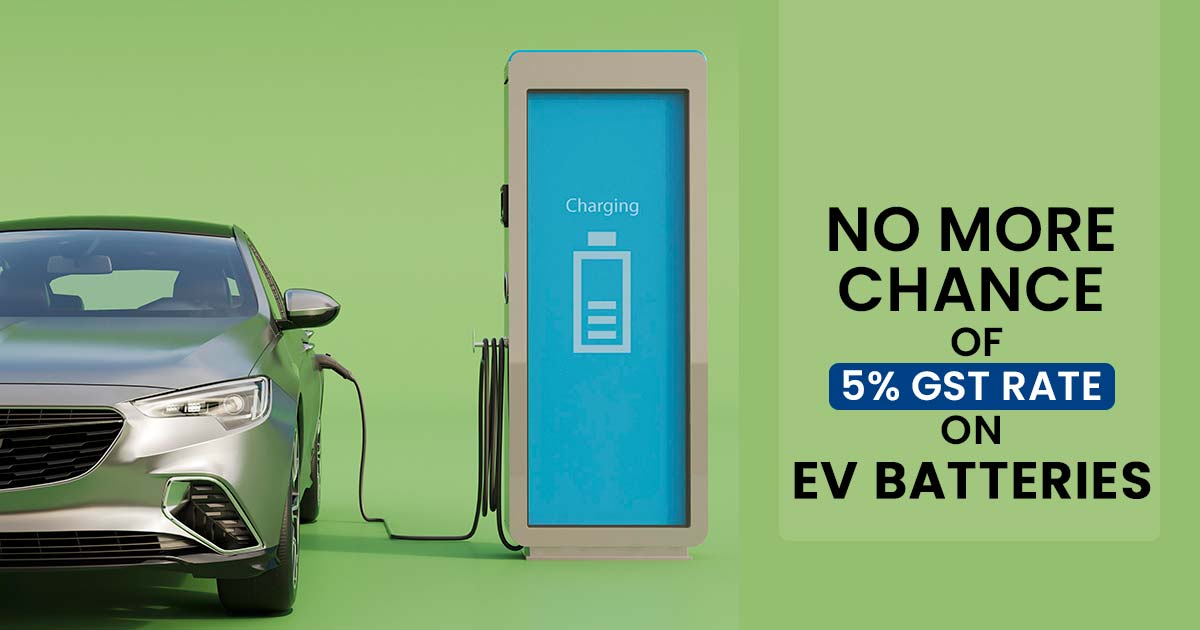
According to sources, the proposal to reduce the goods and services tax (GST) rate on electric vehicle (EV) batteries has been rejected by the GST Council’s fitment committee.
The Electric Vehicle industry had requested a reduction from 18% to 5% for GST on batteries, but the committee has recommended maintaining the current rate.
Members of the fitment committee, which includes revenue officials from both the central and state governments, consider that lithium-ion batteries have multiple applications, including in mobile phones, portable electronics, and electric vehicles.
It is important to note that built-up EVs are subject to a 5% GST, while lithium-ion batteries and charging stations fall under 18% GST applicable.
This decision comes after Union Minister Nitin Gadkari, addressing an SIAM event, questioned why buses and trucks cannot run on ethanol, commending the auto industry for increasing its focus on alternative fuels and electric vehicles.
Gadkari emphasized the significance of making appropriate decisions and timing for the auto industry, he said that companies that failed to transition to electric vehicles have experienced a drop in market share.
Meanwhile, Kamran Rizvi, Secretary of the Ministry of Heavy Industries, stated that the government has not yet made a decision regarding the rolling out of FAME III (Faster Adoption and Manufacturing of (Hybrid &) Electric Vehicles in India) and it is not the right time to comment on the impact of the reduced subsidy scheme for EVs.
Important: Isma Urges Morth to Remain Same GST on Flex-Fuel Vehicles as For EVs
In a recent notification, the Ministry of Heavy Industries announced modifications to the FAME II scheme, reducing the subsidy on electric two-wheelers from Rs. 15,000 per kWh to Rs. 10,000 per kWh and lowering the maximum subsidy cap from 40% to 15%.









